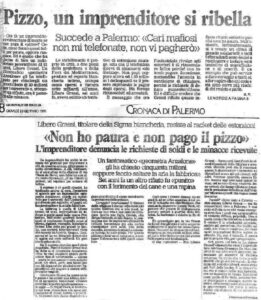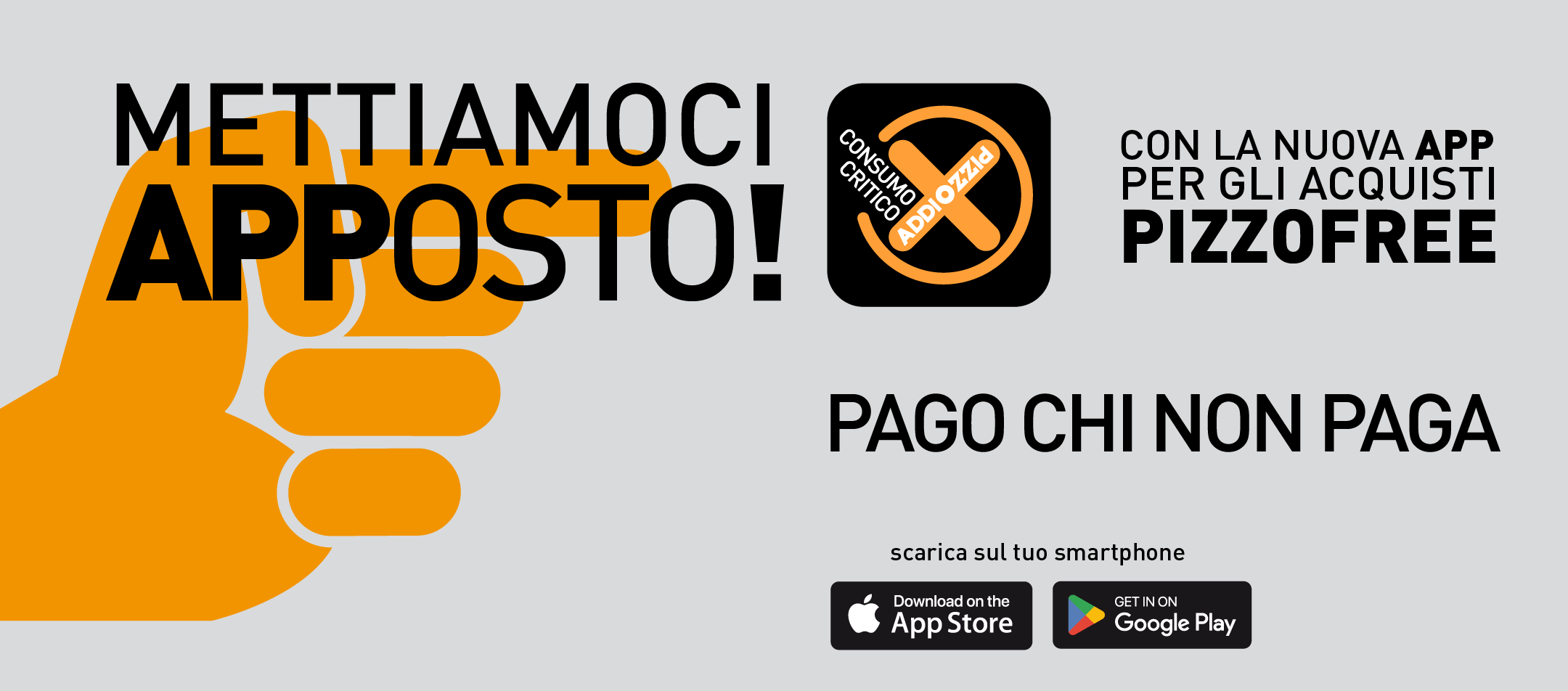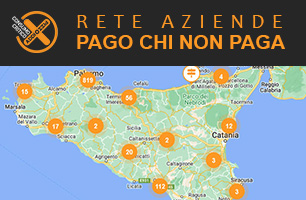On January 10, 1991, Libero Grassi denounced his extortionists in an open letter titled “Dear Extortionist,” published in theGiornale di Sicilia. Thirty-four years later, while some still succumb to paying protection money, the choice to report such crimes is not only possible but no longer requires the media spotlight that Libero Grassi had to endure.
To mark this anniversary, on January 10, Addiopizzo will present its new critical consumption app, “Pago chi non paga”, developed with support from the Tavola Valdese’s 8×1000 funds.
The morning event will take place at 10:30 a.m. at the Association’s headquarters on Via Lincoln 131. Students from the Vittorio Emanuele III Technical Institute, Marco Romano, director of the Giornale di Sicilia, and guest speakers Massimo Mariani (Prefect of Palermo), Francesca Mazzocco (magistrate with Palermo’s Anti-Mafia Directorate), Maria Grazia Nicolò (National Anti-Racket Commissioner), and Alice and Davide Grassi will participate.
In the evening, at 8:30 p.m., the app will also be presented at the pizzeria “Dolce rosso pizza” di Capaci (Pa). This event will support the restaurant owners, who were once targeted by threats and extortion attempts, which they reported with Addiopizzo’s assistance. It is a reminder that we cannot expect business owners to stand up to extortion without active support from the community. .
The new app uses geolocation to identify businesses that are part of Addiopizzo’s network. Users can also search by category or neighborhood. This digital guide to critical consumption, available for iOS and Android devices, aims to strengthen the social safety net for those who refuse to pay extortion. It provides citizens with an accessible way to support these businesses through their spending choices and expands the solidarity network around those who resist the logic of the racket.
The trials conducted in Palermo over the past two decades, thanks to the work of magistrates, law enforcement, and support from civil society organizations, show that hundreds of business owners have stood up to Cosa Nostra. However, to achieve a decisive shift in overcoming organized crime and extortion, policymakers must address the deep pockets of poverty in the city’s outskirts. These areas, plagued by deprivation, breed deviance and widespread illegality, where basic rights such as housing, work, education, and healthcare remain out of reach for many.
elying solely on the efforts of magistrates and law enforcement is no longer enough. Those in governance must invest in creating social and economic alternatives to Cosa Nostra, which has become a de facto safety net in many of these neighborhoods through its illicit activities.
DOWNLOAD THE APP
PRESS
la Repubblica Palermo – Il cappio del racket su imprese edili e commercianti. Denuncia uno su cento.
la Repubblica Palermo – Troppi imprenditori pagano il pizzo. Ma non è solo paura, c’è ancora tanta voglia di mafia
Ansa – Pago chi non paga, una app Addiopizzo sul consumo critico
Giornale di Sicilia.it – Consumo critico in Sicilia, nasce l’App di Addiopizzo: guida dei locali che non si piegano al racket
Giornale di Sicilia – Addiopizzo lancia l’app contro il racket
Palermo Today – La mappa dei locali che non si piegano al racket delle estorsioni, Addiopizzo lancia un’app
La Sicilia – “Pago chi non paga”, una app Addiopizzo sul consumo critico
Live Sicilia – Racket e consumo critico: a Palermo nasce la App di Addiopizzo
La storia di Libero Grassi. La sua vita familiare e imprenditoriale, le sue denunce e la sua ribellione ricostruite con i racconti dei figli Alice e Davide e del nipote Alfredo.





